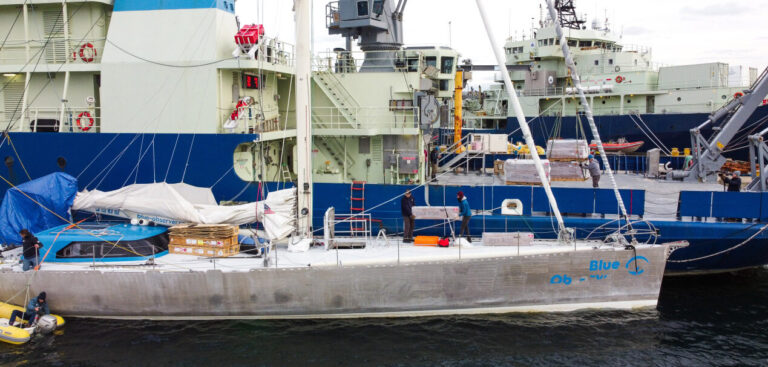The US National Oceanographic and Atmospheric Administration (NOAA) and partners have joined together to launch approximately 100 new Argo floats across the Atlantic Ocean to collect data that supports ocean, weather and climate research and prediction. NOAA says the floats will bolster the international Argo program, which maintains a global array of about 3,800 floats that measure the pressure, temperature and salinity of the upper 2,000m (1.2 miles) of the ocean.
The French sailing vessel Iris arrived in Woods Hole, Massachusetts, in mid-December after deploying an initial batch of 17 Argo floats across the Atlantic. While there, the S/V Iris crew picked up the remaining floats for the second leg of the voyage in the South Atlantic, toward the island of St. Helena off the coast of Namibia. The mission is one of the largest Argo float deployments in the Atlantic and is expected to last almost 100 days at sea, filling in crucial observing gaps.
The low-carbon research mission uses an 82ft sailing vessel and was made possible through a new partnership between the private oceanographic company Blue Observer and international Argo program partners from Woods Hole Oceanographic Institution, NOAA, Fisheries and Oceans Canada and organizations in Europe.
“Coming at a moment when we need meaningful action to tackle the climate crisis, this low-carbon-emission research mission sets a strong example for future ocean observing research,” said NOAA administrator Rick Spinrad, PhD. “This voyage is a model of global public-private partnership that is helping us improve data that drives life-saving weather and climate forecasts.”
During one of the largest missions by a sailboat to deploy profiling floats, the S/V Iris crew will deliver Argo floats to predefined GPS positions, replacing those at the end of their life and deploying others in new, under-measured regions to strengthen the Argo array. The mission lifetime of each float is about five years. During a typical mission, each float reports a profile of the upper ocean every 10 days, transmitting data to shore by satellite.
“Argo has revolutionized our ability to detect and monitor how the global ocean is changing as climate changes,” added Peter de Menocal, PhD, president and director of the Woods Hole Oceanographic Institution. “The whole ocean warming trends observed by Argo floats is proof positive that climate change is due to greenhouse gas emissions.”



